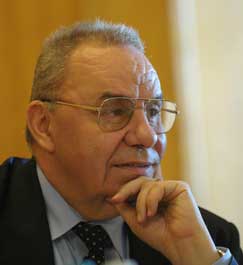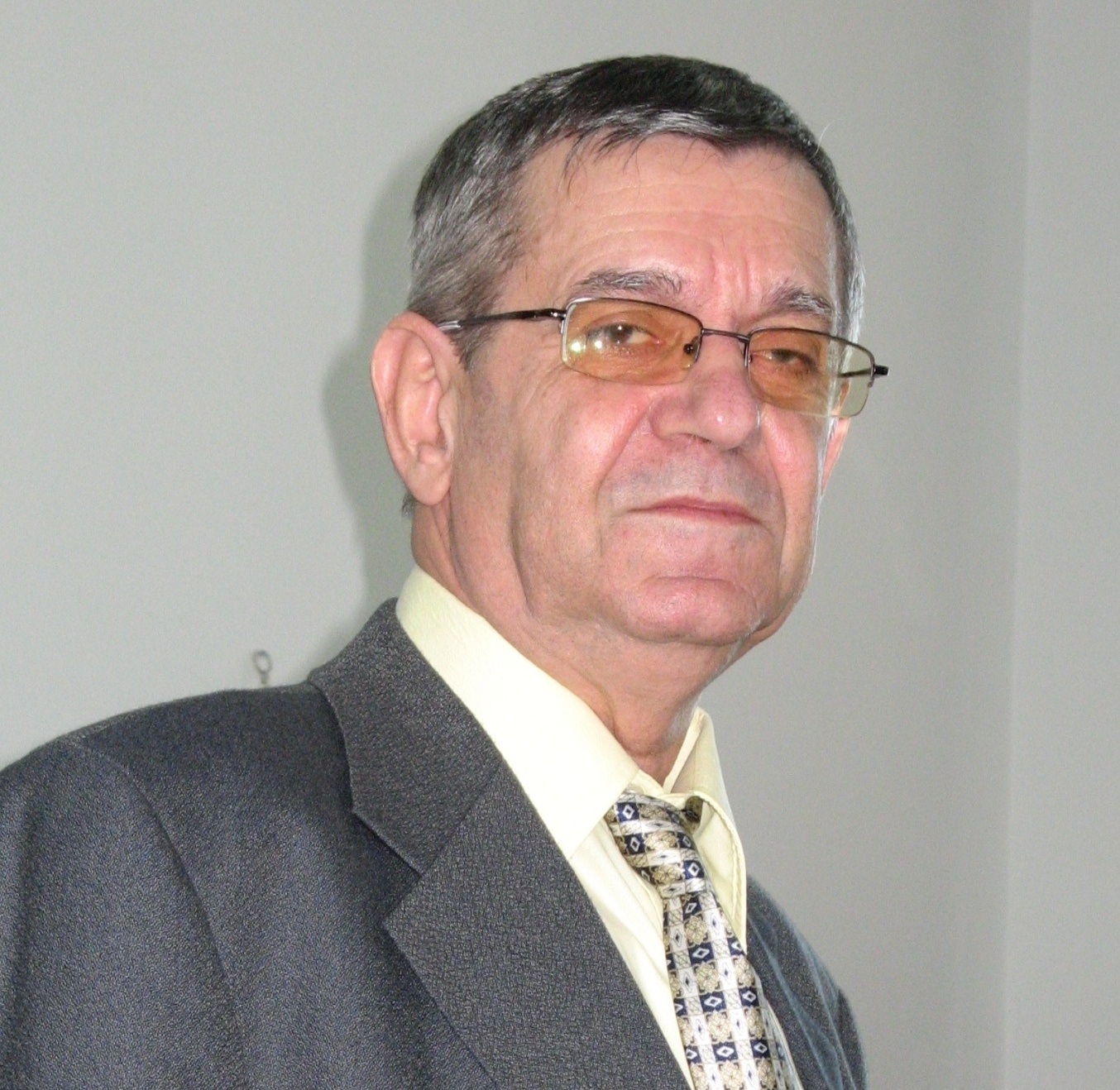Marie-Jeanne Ion, journalist with Prima TV private television station and former hostage in Iraq, agreed to share with readers of Jurnalul National daily her story about the 55-day long ordeal she had been through.
In this third part of the series of interviews conducted exclusively with JN, she gives an account of the way the terrorists "directed" the video and audio recordings to be sent to Romanian authorities.
"Sorin sMiscoci, a cameraman with Prima TV, also hostage along Ion and Ovidiu Ohanesian, a journalist with Romanian Libera dailyt was trying to take heart and encourage us too. «They will free us before Easter,» he kept saying. There was plenty of time for such a decision to be taken by that date, we thought. It is strange, but when you lie down in complete darkness, you are able to count the days. sPrisonert number 6 spresumably former French hostage Florence Aubenas, trans. notet had an amazing ability to approximate even the time of the day. No. 6 was exercising her/his legs every day and knew "from an earlier life," when she/he was exercising in a gym that a full session of work-out took one hour and a half. So, we knew that it was Monday, 18 April."
"A week had passed since we last met sthe leader of the group calledt Hajji sname given to a Muslim making the trip to Meccat. The door opened and the guards came in with our lunch. Usually we got a cake and an apple, but this time it was sandwiches! Sorin was very happy, for he was always hungry. It was quite normal for a man standing 6â5ââ tall. He kept asking for more food, and sometimes the guards supplemented his share. At the end of our stay they finally got it and brought him double portions of everything.
So, in stepped the guard which was on duty that day, with a tray full of food. On the door step there was another person standing, though. I could glimpse while looking under my eye-cover that his legs looked like those of a muscular man. No one said a word. No. 6 expected to be interviewed. She/he was told that her/his liberation was close. But there was no sign of that. The man standing in the door way passed a plate of food to No. 6. I later found out that it was fried chicken and salad. The guard started to pass around the sandwiched, but I got none. What could that mean? It is a bad sign when an Arab does not share his food with you, when you are in his house. A few moments later I felt a tap on my shoulder.
I was told to get up and go upstairs for an interview. Each time that happened, the guards bent your head down and turned you around several times. «What do they think of it: that we will start thinking we are in Baghdad?» joked No. 6.
Once upstairs, I too was presented with a plate filled with goodies: fried chicken, humus and salad. I crossed my legs under me, Turkish style, and sat down on the floor, eating from a tray. Dust kept coming on my plate but no one dies from that.
Then Hajji came in and said that we have to do a video recording. Sorin and Ovidiu were brought upstairs too. They shackled our legs and told us to weep and look desperate.
«If you do not cry I will make you to, » said Hajji.
«You must beg for your lives to be spared. Did you see how that British reporter kept in a cage performed? His Government refused to negotiate so he was beheaded,» Hajji said. We felt fear creeping into our bones. They handcuffed us too. It was only for the duration of the filming, we were told. The boys were told to make gestures expressing despair. For Sorin they devised the famous jerk of the head, which I heard was analyzed by "psychologists" here and interpreted as a sign of sleep deprivation. Sure.
Hajji was the one telling us the text, and the translator was translating it in English. I was to tell the requests our captors had in exchange for our release; I had to appeal to the President and the Government and even to the Romanian people to demonstrate and put pressure on the authorities. That was bullshit, we thought. We never imagined that in todayâs Romania people will take to the streets to save other people.
The reality showed that the Romanians have a heart; it is their "elites" which do not. Or rather, they go into a sudden display of compassion when it is about their public image.
Our captors had only one request: Romania to take out its troops from Iraq. At the end of the text Hajji improvised an ultimatum. «Say that if your authorities to do not comply with our requests within four days, then we will kill you,» he said.
The three of us froze with fear.
«There is no way the troops could be taken out in four days!» I said.
«It is only for show on television,» answered Hajji.
«But please negotiate. Our authorities will never accept that request. The only thing you could do then would be to kill us. Four days is too tight. At least one week,» I pleaded with him crying.
«What is it you want to say instead: to give them four months? Are you willing to stay here four months?» snapped Hajji.
«You will say four days. You are not the first and will not be the last hostages we held. We know what we are doing,» he added.
We had to comply.
Then we were taken back into the basement cell; our hearts sunk. It was the time we thought most of our families back home. What could a mother or a father feel when seeing such a thing on television? I understood that these were decisions which though were related to us, they deeply affected a lot of people around us. We left for Iraq to do our jobs as professional journalists but we ended up hurting our families and friends. We knew we were alive. But what did they know?
No one told us when the tape was to be broadcast. We waited feverishly for a week. We were afraid Bucharest said "no." What else could it have said given that we were part of the anti-terrorist alliance?! So we were certain our kidnappers will be pissed off.
Days passed by and we did not sense any change in their behavior. Only that the lack of information pushed our patience to the limit. It couldnât have been that bad and our people to desert us. We are three lives to be saved here. Letâs keep our spirits up, we said.
On April 25 the three of us were again taken out of the basement cell. Hajji was nervous and snapping at us, as if in a hurry. He said he got some 80% of his requests complied with, and yet he was not at all satisfied. «I need another video recording,» he said.
We had our eyes covered and we were placed, as usually, against the wall, close to one another. I felt they were doing something to Sorin, who was to my left. When they took out the hoods on our heads I saw what it was all about: they dressed him up in the orange overall ssignaling he was about to be killed, trans. notet.
«You will tell that if they sRomanian authoritiest do not comply with our requests by 6 oâclock Wednesday, you will be killed!» I was supposed to talk first, then Ovidiu, and then Sorin. His message should have basically been «I do not want to die; they sthe captorst told me I was the first to be killed!»
The situation was serious. Both I and Sorin started to cry. There was not pretense there. But Ovidiu was stunned: he showed no reaction at all.
«Why are you not crying? What is going on with you? Are you working for the intelligence services?» snapped our captors?
«Slap me over the face» whispered Ovidiu to me.
«What does he want,» asked Hajji. He was really pissed off. He took a Kalashnikov from one of the guards, armed it and put it to Ovidiuâs head.
«Do you care for your life or not,» asked Hajji. Then he slapped him over the face.
«What the hell are you doing,» I asked Ovidiu. «Snap out of it or we will all be in trouble,» I told him.
He seemed to get out of his stunned reaction.
We were very afraid. What was the purpose for our captors to deploy such tactics? It was clear things did not go very well.
We did a double take on the tape because our captors were not happy with our first try.
Then they asked us to do an audio recording for our television station, Prima TV.
Hajji asked if any of our parents has any relationships with the authorities.
We told him that they did not s Ionâs father was elected to the Senate on a Social Democrat Party ticket, trans. Notet.
He asked, however, for phone numbers back home. I was the only one who managed to give it to him. The boys were taken downstairs, and I stayed to make another audio tape with a message to the Romanian ambassador in Iraq, which started «I speak for myself and on behalf of my colleagues. This is the last message you will receive from us.»
Many more days of staying in the dark passed by. The recordings were made on April 25, in the afternoon. We thought they must have been broadcast the next day. And then something very bad was to happen on Wednesday.
Next day the guards came to ask for the phone numbers at our television station and for the name of our boss there. Then another week of desperation passed by.
If the answer sfrom Romanian authoritiest was "yes," why they scaptorst do not record a tape proving we were alive. If the answer was "no," why they did not kill us?
We were at a loss.
On May 2 we got another ray of hope. In the evening the three guards entered the cell and got us out again. They gave me a sheet of paper and a pen and told me to lift my hood so as to see the paper. I was supposed to write down the names our mothers had before marriage and afterwards. As they did not speak very good English I could not understand what they were asking, so they brought in Mounaf to translate for us. I wrote down what they asked from us and we became again hopeful. No. 6 told us that this was one of the oldest methods to prove to a third party that we were alive. Our people must have requested it. This meant they were negotiating with our captors; we were not about to die."
Back to present time:
Ion was interviewed yesterday by prosecutors as a witness in her kidnapping file.
She was asked to arrive at 2 p.m., and yet she came 45 minutes late to meet the prosecutors.
Ion said she did not decide yet if she will file a civil suit against her captors, and that will coordinate her actions with those of her colleague, Miscoci.
When asked if she was afraid of being confronted with Omar Hayssam sthe alleged mastermind for the kidnapping of the Romanian journalists, trans. notet she said "I have no problem with that and I do not know why I should have one."









